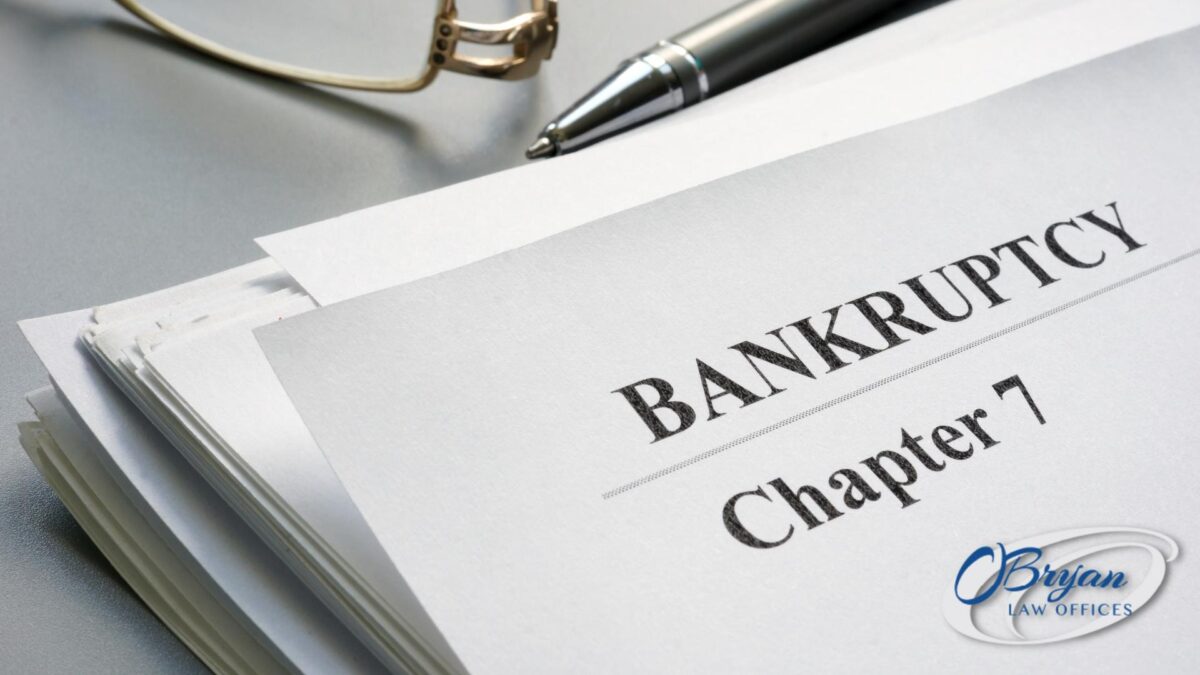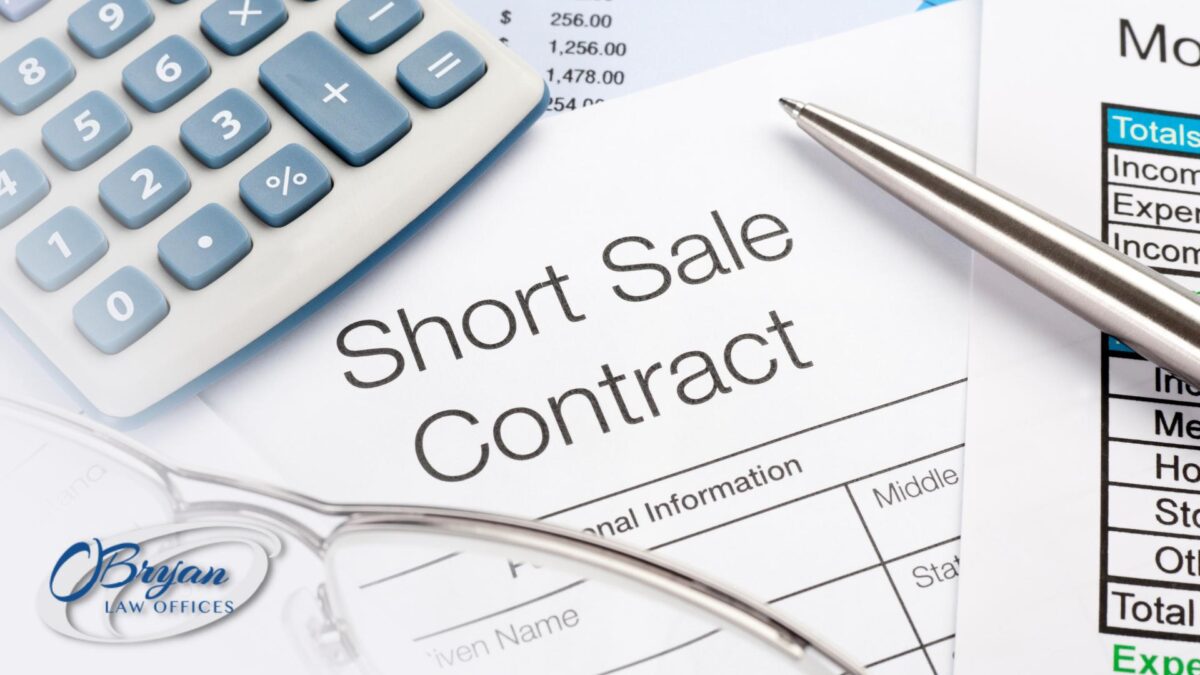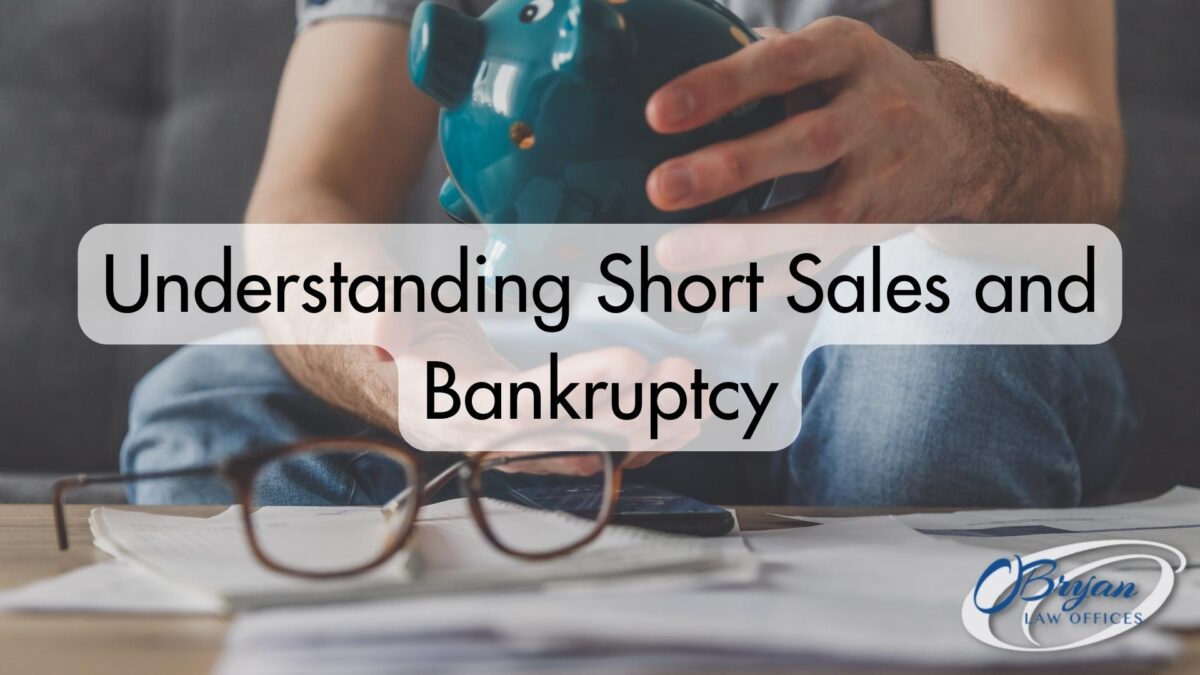Understanding the intricacies of short sales and bankruptcy is essential, especially for those navigating financial difficulties. These processes are not just legal terms; they represent pivotal decisions that can impact an individual’s financial health.
In our latest blog, the Kentucky bankruptcy attorneys from the O’Bryan Law Offices hope to shed light on both, highlighting how they can serve as tools for managing and overcoming financial distress. We’ll explore their definitions, processes, and the potential consequences of each choice.
Whether you are considering a short sale, facing bankruptcy, or just seeking to expand your financial knowledge, contact the experienced attorneys at the O’Bryan Law Offices by calling 502-339-0222.
What Is Bankruptcy?
Bankruptcy is a legal process to relieve individuals or businesses overwhelmed by debt. The most common types of bankruptcy are Chapter 7 and Chapter 13. Depending on your financial situation, your attorney will help you choose which bankruptcy is best for you.
Bankruptcy is a significant step involving complex legal procedures and having lasting impacts on one’s credit history and financial standing. Filing bankruptcy can offer a fresh start or a more manageable way to handle overwhelming debt, serving as a critical tool for financial recovery and stability.
What Is a Short Sale?

A short sale is a financial and real estate transaction where a property is sold for an amount that is less than the outstanding mortgage owed on it. This option is typically considered by homeowners facing financial hardship who cannot continue making mortgage payments, often as a means to avoid foreclosure.
In a short sale, the lender agrees to accept the proceeds from the sale as a full settlement of the debt, even though it falls short of the total amount due. This process requires lender approval, as it involves them accepting a loss.
While a short sale can relieve the homeowner from the burden of an unaffordable property, it also has implications for their credit score and may carry tax consequences. A short sale is often considered preferable to foreclosure due to its lesser impact on the homeowner’s credit report and future home purchase ability.
Deed in Lieu or Short Sale vs Bankruptcy
With a deed in lieu of foreclosure, a homeowner voluntarily transfers the property title to the lender to avoid foreclosure. A short sale involves selling the property for less than the owed mortgage amount with the lender’s consent. Both options typically result in less damage to credit scores compared to foreclosure and can be solutions for those unable to make their monthly mortgage payments.
Bankruptcy offers a broader financial reset, potentially discharging or restructuring various debts, but it can have a more significant and longer-lasting impact on one’s credit history. The choice between these options depends on individual financial situations, future goals, and the types of debts involved, often requiring careful consideration and legal counsel to navigate.
Is a Short Sale a Good Idea During Bankruptcy?
In bankruptcy, assets and debts are scrutinized and managed through the court system. A short sale during this process could help manage mortgage debt, but it’s important to understand how it aligns with the broader goals of bankruptcy.
For example, pursuing a short sale in a Chapter 7 bankruptcy might not offer much benefit if the mortgage debt is set to be discharged. However, a short sale could potentially aid the restructuring process in a Chapter 13 scenario, where debts are reorganized. Each case varies, and factors like the bankruptcy type, the debtor’s overall financial situation, and the lender’s willingness to cooperate play a crucial role.
Is a Short Sale a Good Idea After Bankruptcy?
A homeowner might still struggle with their mortgage balance after a bankruptcy discharge, which often eliminates unsecured debts. In this case, a short sale could be a strategic move to avoid foreclosure and the additional financial and credit damage it entails. It allows the homeowner to address an underwater mortgage, where the home value is less than the owed amount, in a controlled manner.
However, the decision should be weighed against the potential tax implications and how it aligns with the fresh start intended by the bankruptcy. The individual’s ability to get lender approval for a short sale post-bankruptcy can be challenging and requires careful negotiation.
Short Sales and Chapter 7 Bankruptcy

In Chapter 7 bankruptcy, unsecured debt is typically discharged, and certain assets may be liquidated to pay off creditors. If a homeowner files for Chapter 7 and still has significant mortgage debt, a short sale could be considered to address the home loan. A short sale might not yield additional benefits if the mortgage debt is likely discharged in bankruptcy.
The decision to pursue a short sale during a Chapter 7 process should be based on specific factors like the amount of mortgage debt, the property’s value, and the homeowner’s long-term housing plans.
How Do Short Sales Affect Credit?
Chapter 7 bankruptcy significantly affects credit scores by reflecting a discharge of debts, including potential mortgage debt. If a short sale occurs before you file bankruptcy, it will be reported as a settlement or paid for less than owed, negatively impacting credit scores.
However, suppose the short sale happens after the bankruptcy filing and the mortgage debt is included in the bankruptcy discharge. In that case, the additional impact on your credit report might be minimal since the bankruptcy likely already lowered the credit score significantly.
It’s crucial to remember that the combination of bankruptcy and a short sale can compound the time it takes to rebuild credit, as both can remain on credit reports for seven to ten years, though their effect diminishes over time.
Will I Be Taxed on the Cancellation of My Mortgage Loan?
Generally, when a portion of your mortgage debt is forgiven or canceled, such as in a short sale or foreclosure, the IRS may consider this canceled debt taxable income. However, there are exceptions.
For instance, the Mortgage Forgiveness Debt Relief Act previously allowed taxpayers to exclude income from the discharge of debt on their principal residence, but this act’s relevance depends on its current status in tax law.
What If I Still Owe My Mortgage Lender After the Short Sale?
If you still owe your mortgage lender after a short sale, the sale proceeds didn’t cover the full amount of your mortgage debt. In this situation, you may be responsible for the unpaid balance. While some states have anti-deficiency laws preventing lenders from collecting the remaining balance, Kentucky and Indiana both allow creditors to file deficiency judgments against the borrower. So, if you still owe the lender money following a short sale, they can seek payment of the remaining balance through a deficiency judgment.
In other cases, lenders may agree to forgive the deficiency, although this could have tax implications, as forgiven debt can sometimes be considered taxable income. It’s important to negotiate the short sale terms and any deficiency liability with your lender before completing the sale. This helps ensure you fully understand any financial responsibilities following the short sale.
What Are the Benefits of Short Sales?

Short sales offer several benefits, particularly for homeowners struggling with mortgage payments and facing potential foreclosure. One of the primary advantages is the ability to mitigate credit damage. While a short sale still impacts credit scores, it is generally less hurtful than a foreclosure. It also provides the homeowner more control over the sale process, often resulting in a more dignified exit from the property compared to the abruptness of foreclosure.
Lenders often prefer short sales to foreclosures, which can be less costly and time-consuming. For the homeowner, a short sale can also relieve the burden of an underwater mortgage.
Certain short sales might qualify for debt forgiveness on the remaining mortgage balance, depending on the lender’s policies, though this can have tax consequences.
What Are the Drawbacks of Short Sales?
Short sales, while beneficial in certain situations, come with several drawbacks. They can significantly affect your credit score, as the sale is often reported as “settled for less than the full amount,” which is viewed negatively by credit agencies. This impact can make securing future loans or credit more challenging.
Short sales can also be a lengthy and uncertain process, requiring lender approval, which isn’t always guaranteed. This can be stressful and time-consuming for the homeowner, especially when dealing with financial difficulties.
An additional drawback is the possibility of being held liable for the remaining balance unless specifically waived by the lender. If the lender forgives this deficiency, it may lead to tax implications, as the forgiven debt could be considered taxable income.
A short sale does not always eliminate all mortgage-related debts, especially if second mortgages or home equity lines of credit are involved, leaving the homeowner with ongoing financial obligations.
Why Do I Need an Attorney for a Short Sale?

It’s important to consult with a bankruptcy attorney when considering a short sale. While your real estate agent can offer advice, there is a monetary incentive for them to recommend the short sale process for your home or investment property.
A bankruptcy attorney from the O’Bryan Law Offices can provide legal guidance, ensuring compliance with real estate laws and proper document handling. They are instrumental in negotiating with lenders, particularly in securing favorable terms and addressing potential deficiencies or tax implications. Their skill in reviewing and preparing necessary documents helps avoid costly errors.
Contact a Kentucky Bankruptcy Attorney with O’Bryan Law Offices
Choosing the O’Bryan Law Offices for your complex legal needs, like bankruptcy and short sales, offers a combination of experience, personalized attention, and a deep understanding of Kentucky’s legal landscape.
Our legal team brings a wealth of knowledge in bankruptcy law, providing clients with tailored, strategic advice to navigate their financial challenges. With a commitment to client care and a proven track record of success, O’Bryan Law Offices stands out as a reliable and compassionate legal partner.
Whether you’re facing financial hardship or need guidance through the intricacies of a short sale, our dedicated legal team is equipped to guide you through each step, ensuring your legal rights are protected while keeping your best interests in mind. To schedule a free consultation with one of our Louisville bankruptcy attorneys, call 502-339-0222 today.







